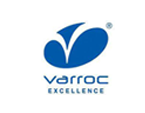B.Tech Electronics and Communication Engineering
Embark on an exciting journey into the world of Electronics and Communication Engineering with the B.Tech. programme at MIT-WPU. This programme equips you with a strong foundation in theoretical concepts and cultivates the practical skills needed to thrive in the ever-evolving world of technology.
What sets MIT-WPU's B.Tech. in ECE apart?
Cutting-Edge Curriculum: Stay ahead of the curve with coursework covering in-demand technologies like Artificial Intelligence & Machine Learning, Big Data Analysis, Cloud Computing, Digital Signal/Image Processing, Embedded Systems, Space Technology, Internet of Things (IoT), Microwave & Optical Communication, Mobile Communication, Robotics, Spintronics, VLSI Design
Modern laboratories and equipment, along with doctorate-holding faculty, encourage a research-focused approach to advancements in electronics and communication, making it one of the best B. Tech institutes in Maharashtra.
The curriculum aligns with industry trends, providing students with industry projects, mentorship, and internships to develop their skills further. Graduates emerge equipped with knowledge and skills in telecommunications, electronics, and computing, preparing them for diverse career opportunities in fields such as automation, manufacturing, transportation, and disaster management.
- Communication Engineering - IoT
- Signal and Image Processing – Computer Vision
- Artificial Intelligence
- VLSI & Embedded
- Applied Electronics
Admissions / Applications against Cancellations
B.Tech Electronics and Communication Engineering
| Scholarship Name | JEE Percentile | MH-CET Percentile |
| Dr. Vishwanath Karad Scholarship (100%) | 94 & Above | 95 & Above |
| MIT-WPU Scholarship I (50%) | 92 & Above | 93 & Above |
| MIT-WPU Scholarship II (25%) | 91 & Above | 92 & Above |
Note: Best of JEE or MHT-CET Score will be considered for availing the scholarship.
*Terms & Conditions apply:All Scholarships are awarded on a First Come First Serve basis All Scholarships are awarded as fee adjustments.
To continue the scholarship for the entire duration of the programme, a minimum level of the academic score has to be maintained at an 8 CGPA across all semesters, attendance is to be maintained at a minimum of 80 percent and there should be no disciplinary action against the student.
For more detailed information visit our website:https://mitwpu.edu.in/scholarships
For all B. Tech programmes candidates should have appeared in JEE 2024 / MHTCET 2024 / PERA 2024 / MHTCET-B* 2024 / NEET* 2024 score. [*Applicable only for Bioengineering programme]
Minimum 50% aggregate score in PCM/PCB* or Physics & Mathematics with any Technical Vocational Subject. Physics, Mathematics & English is Compulsory with Chemistry/Biotechnology* or Biology*/Technical Vocational Courses in 10+2/Class 12th or equivalent examination AND 50% aggregate score in Class 12th/HSC.
[*Applicable only for Bio engineering program] (at least 45% marks, in case of Reserved class category candidate belonging to Maharashtra State only) OR
Minimum 60% aggregate score in Diploma in Engineering & Technology in an appropriate branch from UGC approved University (without backlog).
The selection process for B.Tech programmes is based on JEE 2024 / MHTCET 2024 / PERA 2024 / MHTCET-B* 2024 / NEET* 2024 score and a Statement of Purpose (500 words) written by the student for those candidates who meet the Eligibility criteria. [*Applicable only for Bioengineering programme]
- Focuses on areas such as communication, automation, IoT, energy, mobility, transportation, and VLSI.
- State-of-the-art laboratories with advanced equipment like DELL PowerEdge Servers, Vector Network and Spectrum Analyzers, Real-time Spectrum Analyzers, Logic Analyzers, USRP, NVIDIA CUDA Parallel Computing Platform, and more, along with software tools for optical chip design, simulations, and microcontroller modelling.
- CIAP for potential placement in Telecommunication, Television, Mobile, Satellite, and Optical Fiber Communications, among others, providing a complete ecosystem for career development.
- 3-month to 6-month internships and two to three-week national academic emission programmes across government, industry, and university sectors.
- Industry collaboration opportunities through industry-based projects.
- Emphasis on holistic education, offering courses on personal growth, ethics in technology, and the societal impact of AI.
- Access technical, cultural, and sports clubs like STeRG, MASS, CHARM, MARS, KPIT Sparkle, Codec Club, IEEE Student Chapter etc., enhancing overall development.
- World-Class Facilities: Hone your practical skills in modern laboratories equipped with cutting-edge equipment.
- Renowned Faculty: Learn from doctorate-holding faculty who foster a research-focused approach to deepen your understanding of advancements in electronics and communication.
- Industry-Ready Graduates: The curriculum aligns with industry trends, providing valuable practical experiences through
Industry Projects: Apply your knowledge to real-world problems.
Mentorship: Gain guidance from experienced professionals.
Internships: Solidify your skills through hands-on industry experience.
- Apply mathematical, scientific, and engineering principles to solve complex engineering problems, analyse research literature, and reach substantiated conclusions using first principles.
- Design engineering solutions and system components considering public health, safety, societal, and environmental factors.
- Use research-based knowledge and methods to investigate complex problems, including designing experiments, analysing and interpreting data, and providing valid conclusions.
- Utilise appropriate modern engineering tools and techniques, integrating contextual knowledge to evaluate societal, safety, health, legal, and cultural aspects while considering limitations.
- Apply ethical principles, work effectively in teams, communicate complex engineering concepts with clarity, demonstrate project management and financial skills, and recognize the need for lifelong learning in a rapidly evolving technological landscape.
- Design and test electronic modules, apply programming skills for problem-solving and demonstrate competency in developing Internet of Things (IoT) based systems.























 admissions@mitwpu.edu.in
admissions@mitwpu.edu.in 

